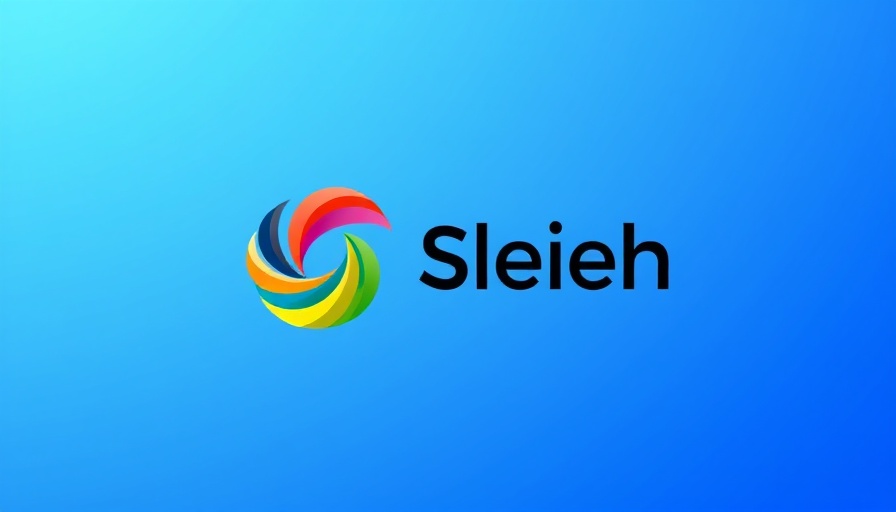
Microsoft Unveils Dragon Copilot: A Game-Changer for Healthcare Technology
In an exciting development for the healthcare industry, Microsoft has announced the launch of Dragon Copilot—an advanced AI assistant meticulously designed to transform clinical workflows. By integrating cutting-edge voice dictation technologies acquired from Nuance, Microsoft aims to alleviate the administrative burdens faced by healthcare professionals, allowing them to concentrate more on patient care.
Joe Petro, Vice President of Microsoft Health and Life Sciences Solutions and Platforms, emphasizes that this innovation is specifically designed to enhance clinician well-being and address the rising concerns of burnout within the sector. Studies indicate a remarkable drop in clinician burnout in the U.S., attributed to technological advancements like Dragon Copilot.
Breaking Down Dragon Copilot's Features
Dragon Copilot incorporates several pioneering features that streamline documentation and improve efficiency. Among these are:
- Multilanguage Ambient Note Creation: This feature enables real-time content creation based on clinician interactions, catering to diverse patient populations.
- Natural Language Dictation: Clinicians can speak naturally, and the AI will accurately transcribe and populate the EHR systems without requiring extensive editing.
- Task Automation: Routine tasks such as referral letters and after-visit summaries can be generated automatically, saving clinicians valuable time.
These functionalities have the potential to revolutionize how healthcare professionals interact with electronic health records (EHRs), significantly cutting down on the time spent on administrative duties.
Enhancing Patient Experiences and Outcomes
According to surveys conducted by Microsoft, the introduction of Dragon Copilot has been positively received in clinical environments, with over 93% of patients reporting an improved overall experience. This feedback highlights that when clinicians are provided with tools that minimize their workload, they can devote more attention to patient interactions, thereby elevating care quality and satisfaction levels.
In addition, approximately 70% of surveyed clinicians expressed that they experienced reduced feelings of fatigue and burnout due to the efficiencies gained through this AI technology. By addressing these factors, Dragon Copilot could play a pivotal role in mitigating the expected future workforce shortages in healthcare.
The Future of AI in Healthcare
With the rise of AI technologies in healthcare, Dragon Copilot is positioned as a leader among similar applications, such as Google's medical AI initiatives. However, the deployment of AI in clinical settings does come with its share of concerns. The FDA has highlighted risks associated with generative AI, particularly regarding the accuracy of outputs and the potential for misinformation.
As a result, Microsoft assures users that Dragon Copilot has been built using a secure and reliable infrastructure designed to prioritize patient safety and data integrity. Clinicians and healthcare organizations looking to innovate their operations can take comfort in knowing that ethical standards and compliance safeguards are in place.
Implications for Healthcare Organizations
As healthcare organizations embrace technologies like Dragon Copilot, they will need to adapt their clinical practices and workflows to integrate this advanced system effectively. The potential rewards are significant, as evidenced by clinical studies showing reduced burnout rates and improved patient experiences.
Future iterations of Dragon Copilot are anticipated to further enhance its offerings, including more robust functionalities that accommodate the increasing demands of healthcare. By adopting these innovations, organizations will be better equipped to tackle the challenges of modern healthcare, leading to improved outcomes for both patients and providers.
Conclusion: Embracing AI for Better Healthcare
The introduction of Microsoft Dragon Copilot marks a significant advancement in the intersection of AI and healthcare. As AI technology continues to evolve, it promises not only to streamline administrative tasks but also to foster deeper connections between clinicians and patients. Embracing such innovations will be crucial in navigating the complexities of healthcare delivery in the coming years.
 Add Row
Add Row  Add
Add 




 Add Row
Add Row  Add
Add 

Write A Comment